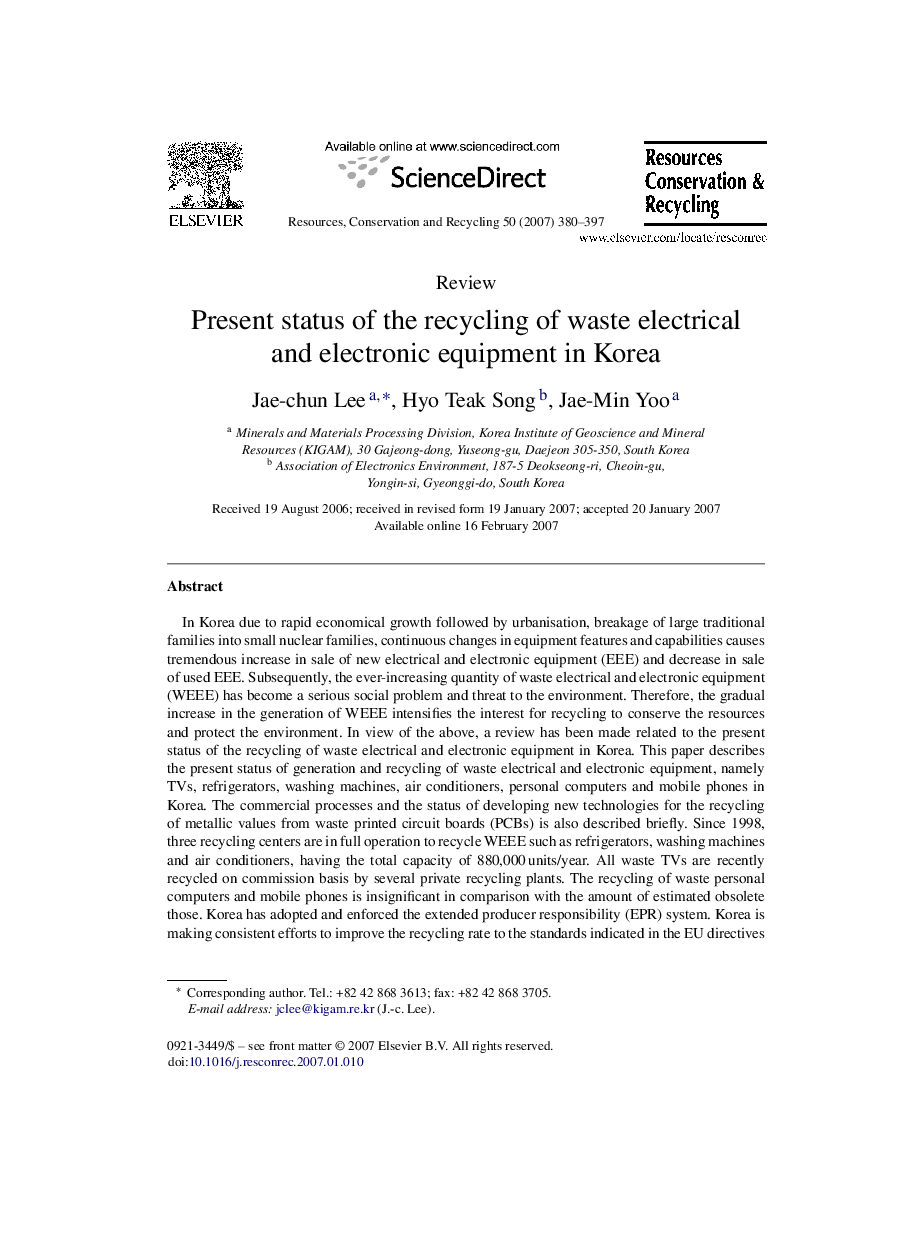| کد مقاله | کد نشریه | سال انتشار | مقاله انگلیسی | نسخه تمام متن |
|---|---|---|---|---|
| 1064075 | 1485736 | 2007 | 18 صفحه PDF | دانلود رایگان |

In Korea due to rapid economical growth followed by urbanisation, breakage of large traditional families into small nuclear families, continuous changes in equipment features and capabilities causes tremendous increase in sale of new electrical and electronic equipment (EEE) and decrease in sale of used EEE. Subsequently, the ever-increasing quantity of waste electrical and electronic equipment (WEEE) has become a serious social problem and threat to the environment. Therefore, the gradual increase in the generation of WEEE intensifies the interest for recycling to conserve the resources and protect the environment. In view of the above, a review has been made related to the present status of the recycling of waste electrical and electronic equipment in Korea. This paper describes the present status of generation and recycling of waste electrical and electronic equipment, namely TVs, refrigerators, washing machines, air conditioners, personal computers and mobile phones in Korea. The commercial processes and the status of developing new technologies for the recycling of metallic values from waste printed circuit boards (PCBs) is also described briefly. Since 1998, three recycling centers are in full operation to recycle WEEE such as refrigerators, washing machines and air conditioners, having the total capacity of 880,000 units/year. All waste TVs are recently recycled on commission basis by several private recycling plants. The recycling of waste personal computers and mobile phones is insignificant in comparison with the amount of estimated obsolete those. Korea has adopted and enforced the extended producer responsibility (EPR) system. Korea is making consistent efforts to improve the recycling rate to the standards indicated in the EU directives for WEEE. Especially environmentally friendly and energy-saving technologies are being developed to recycle metal values from PCBs of WEEE.
Journal: Resources, Conservation and Recycling - Volume 50, Issue 4, June 2007, Pages 380–397